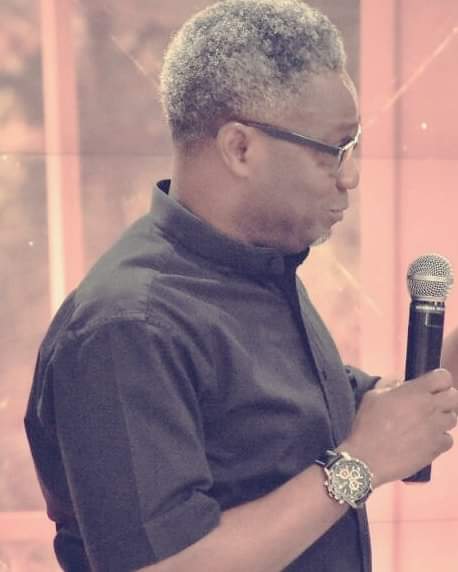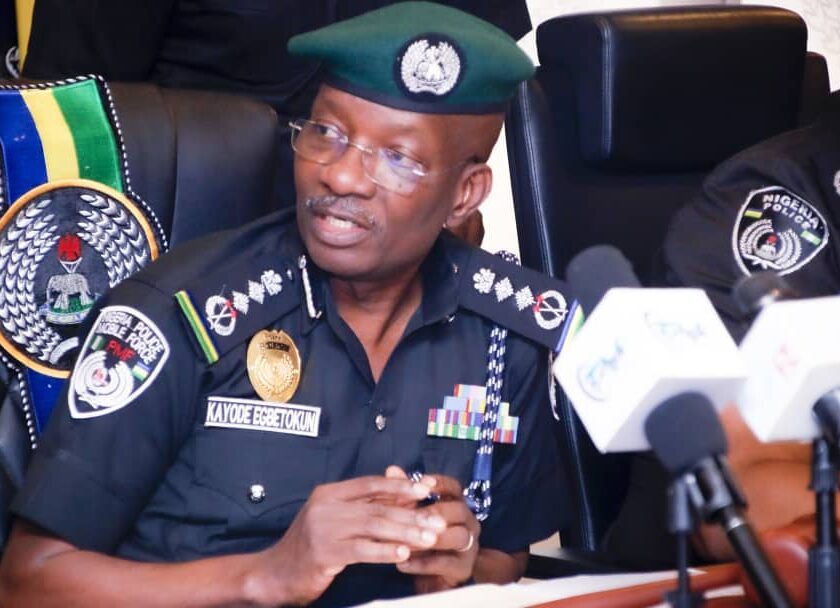In the preface to his classic and development treatise, FROM THIRD WORLD TO FIRST–The Singapore Story: 1965-2000, published 22 years ago, Lee Kuan Yew, founding Prime Minister of Singapore, stated that he wrote the book “for a younger generation of Singaporeans who took stability, growth, and prosperity for granted. I wanted them to know how difficult it was for a small country of 640 sq. km with no natural resources to survive…”.
In the Foreword to Yew’s book, Henry Alfred Kissinger, PhD, one of United States’ most influential Secretary of State, bemoaned the fact that “technology has made it possible for nearly every country to participate in events in every part of the world as they occur. Unfortunately, the explosion in information has not been accompanied by a similar increase in knowledge.”
Kissinger’s submission is so true. There is obvious disproportion in the volume of information available today, otherwise called Big Data, and the derivable benefits we gleaned from them, apparently because we are not intentional about discerning the value of Big Data, and more importantly, in converting the data towards reconstructing our society.
We need to source appropriate information. Indeed, all active citizens should do so because of the need to change our narrative by using the information available to us as advocacy tool for remaking Nigeria. Yes, we can cry out loud, but we must migrate from lamentation to insist that Nigeria takes her place again, because the contemporary optics is different from what Nigeria used to be.
Although, no society is 100 percent socially cohesive, that explains the mark of 50 percent as threshold for social cohesion. So, it is natural to have disagreement and heated debates over resource control – political, economic, social and so on, that have become signposts of our polity. They have been there as latent features of our diversity but the manifest inherent goodness of many of our men and women did not allow any devastating divisiveness to fester beyond control and to become a dominant paradigm or result to carnages, save for the catastrophic civil war between 1967 and 1970. In other words, Nigeria has had a modicum of cohesiveness, unity and faith.
Let me offer some illustrations to my submission by re-storying fragments of information we may know. In 1950, in giving expression to the provision of Lagos Local Government Ordinance No. 17, Abubakar Ibiyinka Olorun-Nimbe was selected the first and only Mayor of Lagos, and Mazi Mbonu Ojike, an Igbo, was appointed his deputy. Indeed, Musa Yar’Adua (father of General Shehu Yar’Adua, former ‘deputy president’; and HE Umaru Yar’Adua, the 13th President of Nigeria), was Minister for Lagos Affairs in the First Republic.
By now, we are familiar with the story of Umaru Altine, a Fulani, who was Mayor of Enugu. He was not appointed. He was elected the first mayor of Enugu in 1952 and re-elected. According to Premium Times, Altine was leader of the youth wing of the Enugu branch of the National Council of Nigeria and Cameroons, later National Council of Nigerian Citizens (NCNC). Altine earned it. He was a party cadre. There was Northern People’s Congress, but Altine did not join NPC and he was not challenged in Enugu or asked to go home because Enugu was home.
Then, citizenship, tribe and religion were not social issues, not because the Igbos are republican and egalitarian (that is a fact) but because the political parties in those days ‘built’ real cadres. You do not become a party stalwart by heredity or other circumstances of birth, faith or regional origin. This is still the practice in Republic of South Africa, where elections even into campus student union government positions are contested under the auspices of political parties in the larger society. Largely, all cadres of the African National Congress (ANC), and Malema’s Economic Freedom Fighters (EFF) started from their localities, campuses, and other social cultural settings. So, President Thabo Mbeki did not become President because his father, Govan, was Mandela’s friend, Thabo was an ANC cadre. He earned it.
In addition, according to ng.opera.news and charlesomole.org, in 1957, Felix Okonkwo, originally from Nnewi, was inducted into the Northern Nigeria House of Chiefs. Also known as ‘Okonkwo Kano’, his groundnut business, Okonkwo and Sons, prospered not because Igbos were his main client. The people of Kano, particularly the people of Kwankwaso (yes, the hometown of HE Rabiu Musa Kwankwaso), loved Okonkwo to the sun and down.
I do not know whether in the vortex of the resurgent regional nationalism, the people of Port Harcourt will still vote Etsako man or woman to represent them either in Rivers State House of Assembly or at the Federal House of Representatives. But they did so in the First Republic when they voted John Umolu to be their representative at the Eastern Regional House of Assembly. To the great people of Port Harcourt, Umolu’s ancestry was irrelevant.
Ernest Ikoli, ancestrally Ijaw of Ogbia clan, first editor of Daily Times and possibly the fiercest president of the Nigerian Youth Movement, was supported by Obafemi Awolowo in the bye-election for the Lagos seat in the Nigerian Legislative Council in 1941. The election was conducted to replace Kofo Abayomi, who resigned to undertake a postgraduate study in Ophthalmology in the United Kingdom having won a scholarship (our God shall be praised if any current member of the National Assembly will resign to pursue a postgraduate study, even with scholarship, except perhaps to escape terrorism and banditry). Anyway, Ikoli’s strongest opponent in that election was Samuel Akinsanya. Like Awolowo, Akinsanya was not just a Yoruba, he was from Remo like Awolowo. Shortly after the incident in 1941, Akinsanya, a prince and fiery trade unionist, and like Ikoli, a nationalist, became the Odemo, the king and paramount ruler of Isara until his transition in 1985.
Easily from residual knowledge garnered as a student leader and social rights activist for clearly three decades, including my career in journalism (as a student, teacher and practitioner) as well as in social entrepreneurship during which I ‘lived’ in every state of Nigeria, I could tell that we have suffered a painful reversal of what used to be our treasure.
As a student leader, we would set forth at dawn from Uyo through Abuja, Jos, Bauchi to Damaturu, en route Maiduguri. Otherwise, we would drive from Sokoto through Kaduna, Niger, Abuja and proceed to Calabar (I so love that city). Or we simply set out from Lagos to Enugu and then to Port Harcourt. We would stop on all campuses on the routes to listen to our comrades on state of their campuses, we would do small or big ‘ALUTA’ (protests) depending on the severity of oppression of students or how we may be circumstanced. We did not fear the agents of the State, but we were conscious of them because we did not subscribe to cheap martyrdom. It is painful realising how much we have lost and the deepening climate of fear and distrust among the people of Nigeria. Many of our so-called leaders mismanaged our diversity but that does not worry me as much as the reality that many of us followers have inherited the perversion popularised by some elites.
So, I thought to share these pieces of information, or perhaps to reiterate fragments of information already in the public space. The overarching objective is to challenge what has become the reigning paradigm. Importantly, I share these thoughts in the belief that the information will provide knowledge to those who may not know, so we can collectively take a turn, tame divisiveness, activate the transformative power inherent in knowledge application, and take our country, Nigeria, back from forces holding her in backward conditions.
And the forces are not just politicians and the perverted ruling elites, to paraphrase Prof. George Ayittey. Indeed, the forces include people around us who thrive on lies that divide us. You will find those people in your families, neighbourhoods, offices, and everywhere. In the offices, they are more devastating as they inject toxicity into a machinery that is supposedly the bastion of establishment that drives policy implementation. The machine then becomes corrosive.
These so-called public servants and they are also in the private sector, are busy imposing a counterculture. We must take back our country from them because they are more dangerous and more devastating cogs than the other elites, sometimes they are in alliance with them. The reason they always refused to do their work sincerely to add value to the community. They are only ‘hardworking’ when the task assigned to them brings some illegal financial remuneration, in which case they would appear busy but because they are lacking in capacity, the task is ultimately done by others. Remember the 20/80 principle, especially as enunciated by Pareto.
So, we must tame their conduct and stop them from toxifying our space further, even as we decisively roll back every vestige of their toxicity. They are negative, incurably lazy and incompetent – not because they cannot be competent and positive – they opted for ‘profanities’, indolence, and incompetence, they even weaponise those negative values, and every so often fetishize them using divisiveness and gaslighting because they can only thrive in acrimony and confusion. We have allowed these people for too long, we must stop them and take our country back, and now.
The coming elections provide the most auspicious moment to challenge them, not by logic of force but through the force of logic by educating ourselves afresh before educating others, and then co-create a new sense of community and raising the banner of cohesiveness around unifying and ennobling ideas pivoted on merit, competence and social justice. To remake Nigeria, all of us need to be involved, not just by voting but by persuading the cynical and the despondent to vote only candidates they can hold accountable, who are ready to take heat when we call them to discharge the burden of proof that they have implemented their respective manifestoes sincerely and fairly.
Let us take Nigeria back Nigeria and make her better than what it used to be, so that later, we will be bold to tell future generations of Nigerians, as Yew told young Singaporeans the story of his nation’s enviable transformation. We must be intentional about this duty, so we can offer our story in contexts that make meaning, reinforcing our “Unity and Faith” to achieve “Peace and Progress”.
Omoniyi Ibietan, a Political Communication Scholar and Public Affairs Analyst ,writes in from Abuja





